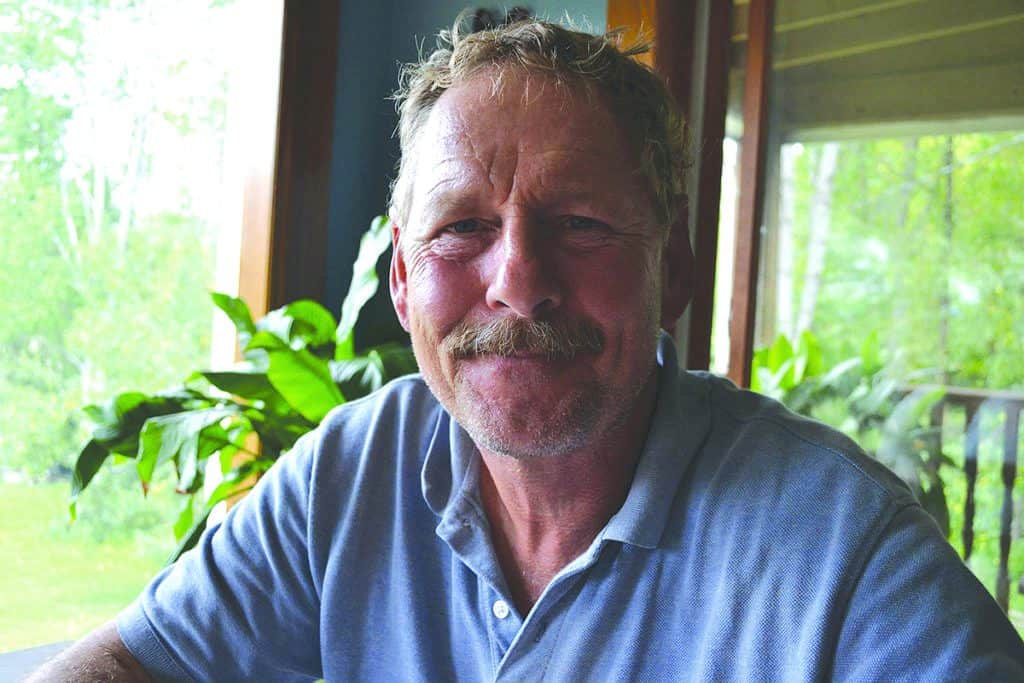
Mayor proclaims April 30 as Dave Schneider Arbor Day
By Brett Yates
After two decades on the job, Rutland City’s forester and arborist Dave Schneider will retire on Jan. 4, 2021. Tim Smith, Schneider’s assistant for the past four years, will replace him.
At the Board of Aldermen Dec. 7 meeting, Mayor David Allaire officially proclaimed that 2021’s Arbor Day, on April 30, will be known as Dave Schneider Arbor Day in Rutland City. Since taking over the Dept. of Public Works’ Forestry Division upon the death of predecessor Dave Richards, Schneider has won statewide and national recognition for Rutland in the form of the Vermont Urban & Community Forestry Council’s Tree Steward Award and Centennial Town Forest Award, in addition to Vermont’s longest-running Tree City USA designation from the Arbor Day Foundation.
The aldermen thanked Schneider for his “outstanding” service. “Our city is a more beautiful city because of you and all the hard work you’ve done,” Alderwoman Sharon Davis remarked at the meeting Monday.
Rutland’s city forester plays a dual role, responsible for both urban arboriculture and woodland management. Schneider prunes shade trees along city streets and clears storm-downed limbs from roads while simultaneously overseeing the 4,000 acres of forest in Mendon from which Rutland draws its potable water supply — a watershed that also serves as a wildlife habitat, recreation area, and commercial logging site (with timber revenue helping to pay for the city’s water system).
In a typical year, the city forester plants 40 to 50 new trees in Rutland, such as crimson king maples, red oaks, and flowering crabapples.
“We get the trees in, and people appreciate them, and that’s really the heart of the job,” Schneider summarized.
In 2018, the Forestry Division faced a new challenge when the emerald ash borer, an invasive beetle, appeared in Vermont, blazing a path of destruction through the state’s forests before arriving in West Rutland this fall. By then, Schneider had already completed the grim task of preemptively chopping down more than 200 healthy ash trees. Roughly 110 still safely stand, however, thanks to injections of a systemic insecticide that the city forester will have to reapply biennially.
Public Works Commissioner Jeff Wennberg, who likewise intends to retire at the end of the year, praised Schneider for doing “a marvelous job of preparing the next city forester,” Tim Smith. A one-man operation until 2016, the Forestry Division grew with Wennberg’s support and now owns a stump grinder, a log trailer, and a woodchipper, allowing Schneider and Smith to perform “95% of the tree care that’s done in the city” without outside help, by Smith’s estimation.
Smith, who hopes the city will eventually hire a new apprentice for the Forestry Division, initially found a job in the arboriculture industry while still a high school student in Connecticut. He went on to earn a bachelor’s degree in forestry from Paul Smith’s College in New York in 2011.
Smith said he enjoys working as an arborist and forester because of “the physical aspects” of the job and “the connection it gives you to nature,” as well as “the fact that hopefully I can help offset our carbon footprint a little bit.”
But he’ll miss working alongside Schneider.“He was truly dedicated to this position,” Smith noted. “He always said to me, ‘The trees don’t have their own voice and can’t stand up for themselves, so you have to be the one to do that’.”




